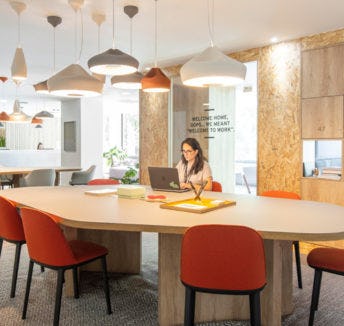
With Millennials making up half of the workforce, and many organisations undergoing radical changes as a result of the pandemic, there’s never been a better time to look at what this demographic expects
How are you engaging with the Millennials in your workforce? And what plans do you have to harness their skills for the new world of work? If the answers are ‘nothing’ and ‘not sure’, now’s the time to get up to speed. Finding the right balance between meaningful work, doing the right thing and putting food on the table has always been the driving focus of Millennials – and Covid-19 has only turbocharged that quest.
Below, David Price OBE, an expert in organisational learning and the author of The Power of Us, shares his learnings based on his interviews with visionary leaders around the world.
Freedom to get the job done
A couple of years ago, I was asked to facilitate a gathering of some of the UK’s major employers. They wanted a presentation on why Millennials didn’t have the skills they needed, and what could help them. I thought they’d missed the point entirely. So, instead, I did a more provocative version entitled: ‘Why the smart Millennials won’t work for “The Man”’.
I shared evidence that listed the attributes that Millennials looked for in great organisations: inclusive leadership, transparency, empathy, ethical purpose, commitment to diversity, radical candour. And humility. I felt as though I was speaking a foreign language, such was the response. I seriously doubt that I’d get the same one today.
The pandemic has changed everything, including the workplace. We can already see that the idea of a five-day-week at a city-centre office is becoming redundant. But the homeworking made necessary by the pandemic has also caused employers to reflect on the new ‘enforcement of trust’. Suddenly they were having to trust employees to do the required hours to get the job done. Though – big surprise – it turned out that workers were actually more productive when no one was checking in on them.
More than just pay and perks
But the process also worked in reverse: with less time commuting and more time to think, Millennials were able to seriously question what they wanted from their job. A pattern had already been emerging. In successive Deloitte surveys in recent years, Millennials have made their intentions clear: 60% said they chose an employer with a sense of purpose; 71% said companies should do more to address global issues, resource scarcity (68%), climate change (65%) and income inequality (64%).
Not only is a strong focus upon societal challenges a prerequisite for Millennials, but they also want to work for an organisation where they can grow and develop as a person. “Millennials want a place where they can be better today than they were yesterday, through learning,” Garry Ridge, CEO and Chair of the WD-40 Company told me. “They’re so inquisitive. A lot of people think it’s about free food and shuffleboard in the canteen. No, they love to learn.”
Radical transparency
Another company I spoke to, BrewDog, is the fastest-growing craft beer maker in the world. It understands this new reality – not least because its co-founders, Martin Dickie and James Watt, are Millennials themselves. BrewDog has torn up the rule book on how businesses get started and, in 10 years, has gone from literally, two men and a dog selling beer from the trunk of their car to a billion-pound business.
The founders insist upon ‘radical transparency’ (all of their financials are available to all of their staff and all of their beer recipes are available to anyone). They also have a very flat organisational structure. As James Watt said when I met him: “Bloated, top heavy businesses offer little to no autonomy and, as a result, no responsibility. With a flatter hierarchy, the ownership lives and breathes in everyone.”
More than anything, however, they don’t run a business, they lead a crusade. They have recently become a carbon negative organisation and are planting 150,000 trees in a forest in Scotland – one for every one of their ‘equity punk’ investors. They insist on paying all their bar staff not just minimum wage, but a living wage – with a week’s ‘pawternity’ leave if you acquire a new dog. It’s no surprise that they have thousands of applicants for every new vacancy.
And this is the point: if we want Millennials to join our organisations, instead of bland CSR statements, we need to find ways of devising people-powered social impact and make staff feel like they’re part of something bigger than themselves.
David Price OBE is the author of The Power of Us: How we connect, act and innovate together, published by Thread books
For more useful tips and insights about management, business, and more, check out our magazine.
Share this article
 Read now How to build your personal brand while working remotely
Read now How to build your personal brand while working remotely
 Read now Defusing work irritations when working from home
Read now Defusing work irritations when working from home